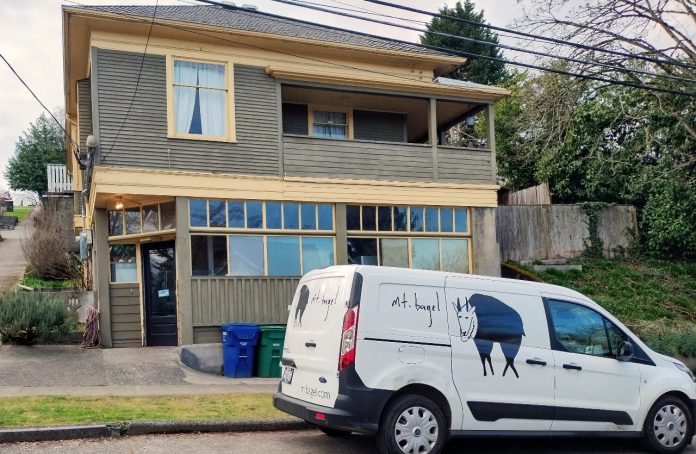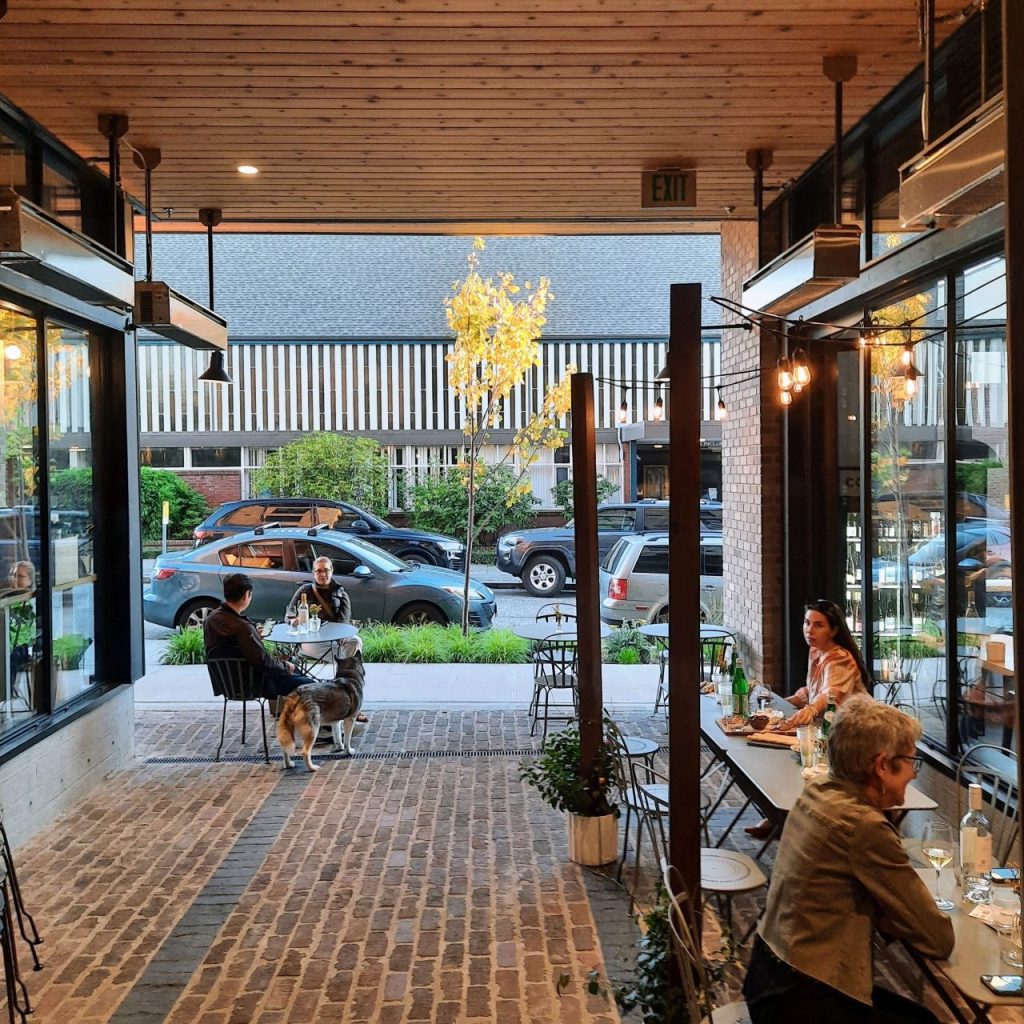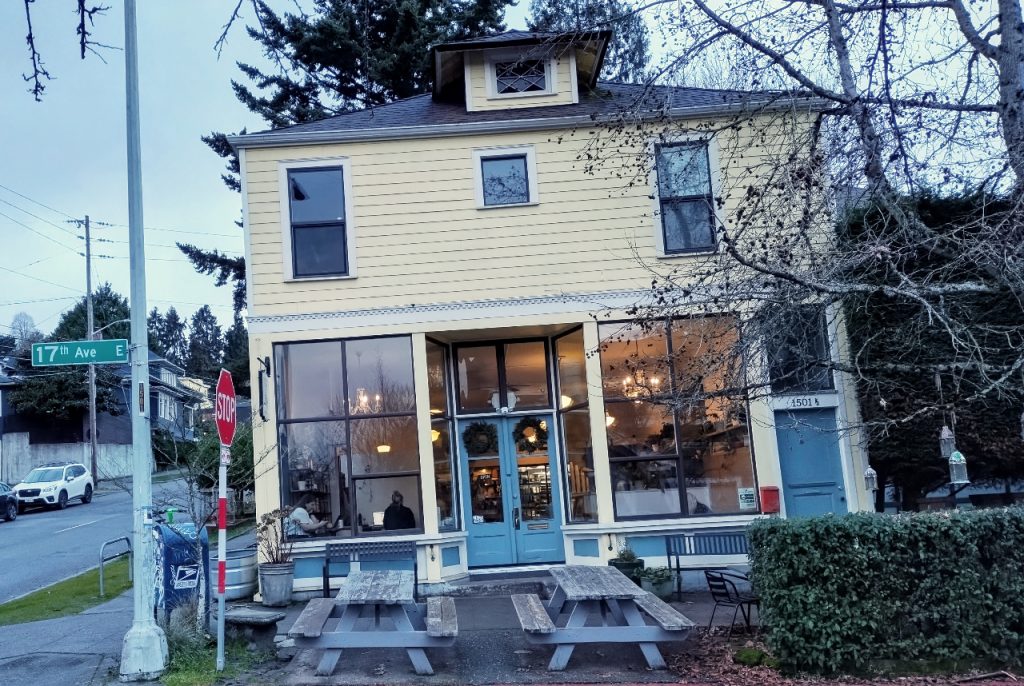
The Washington State Senate’s local government, land use, and tribal affairs committee Tuesday adopted an amendment that turns House Bill 2252, a neighborhood cafe bill that passed the House unanimously on February 9, completely on its head.
The bill in its original form would have required all cities and towns in the state to allow neighborhood cafes in all of their residential zones, by right, with only a few exceptions. As long as the cafe wouldn’t be located on a dead-end street, include a drive-thru, and encompass at least 500 square feet in total, the cafe would be allowed. Plus, cities could only require a maximum of two off-street parking spaces. The most leverage the bill gave cities was the ability to set a cafe’s hours of operation.
Sponsored by Represenative Mark Klicker (R-16, Walla Walla), the bill received very little pushback on the House side, was unanimously voted out of committee, and no member tried to amend it from the House floor ahead of the 97 to 0 vote. There seemed to be a fairly broad consensus that allowing more neighborhood cafes in the state’s neighborhoods would be a welcome development.
The bill adopted by the Senate committee, on the other hand, merely allows cities to permit neighborhood cafes and neighborhood stores, separating out these two potential uses. Except cities already have the power to allow those uses. It also bans alcohol sales at neighborhood cafes or stores, when the House bill allowed alcohol sales as long as food was also on a cafe menu. The Senate’s bill also allows cities to limit “noise, signage, and freight traffic” in addition to hours of operation, though it’s not clear by what mechanism they would be able to do so.
“There’s no reason to have a bill, because they changed the language from city governments may allow these businesses instead of must… well, we don’t need the bill because city governments may allow it anyway,” Klicker told The Urbanist. “It’s gonna probably have to change back to where they must allow it. And some of your city governments may not like it, and I think they’re probably the ones that probably don’t want it more than anybody.”
Many of the changes in the new Senate version came directly from suggestions from the City of Bellevue’s contract lobbyist, Briahna Murray, including the language around noise, signage, and freight traffic. Murray also suggested the idea of a city imposing a maximum square footage on a cafe, in addition to the 500 square foot minimum, which ended up in the language adopted this week. That could potentially provide up an easy loophole to keep these uses banned, by imposing a maximum that is very close to the minimum.

The Association of Washington Cities (AWC), an advocacy group that lobbies in Olympia on behalf of the state’s 281 cities and towns, in a blogpost published late last week, called HB 2252 the “darling of the session” but cited “real concerns beyond preemption,” meaning the ability of local governments to make their own land use decisions, a major point of emphasis for the AWC every year. Those decisions included parking, alcohol sales, and…”the ambiguous meaning of ‘a limited menu'” as defined by the bill.
“The parking restrictions that will result in heavily parked residential streets, pose safety concerns near schools, day care centers, and for pets and vulnerable roadway users,” the AWC argued in the post.
In a hearing on the bill last week, AWC lobbyist Carl Schroeder said the group thought the cap of two parking spaces and the ban on drive-thru service were at odds with each other, seeming to miss the point that the purpose of the bill is to foster cafes that people do not bring their cars to.
Perhaps most alarmingly, the language adopted on the Senate side actually seems to create a heap of potential problems for existing neighborhood businesses, putting them into the realm of “nonconforming uses.” If this bill is signed into law and neighborhood cafes are prohibited by state law from selling alcohol, something left up to local discretion before, what happens to businesses that already have a permit to sell alcohol? What happens to a neighborhood store that’s been grandfathered in for years? At best, a headache for local governments and business owners to deal with. Without those provisions removed, the bill will likely do more harm than good.

But the issue of whether the legislature should outright require cities to allow cafes at all is a more fundamental question that’s set to be aired now that the bill has made it to the Senate. In the bill’s first Senate hearing, Senator Jesse Salomon (D-32, Shoreline) brought up the issue of what the threshold should be for the legislature to override local zoning decisions.
“We’ve done sort of similar bills around housing, right — we know there’s a housing crisis — where we’ve disallowed cities from restricting these [types of] housing,” Salomon said. “What is the case to be made that we should do this for these businesses? I grew up with a neighborhood business — I thought it was great. But I think it’s also a high bar to dictate to cities what they can and can’t do.”
The issue of “local control” is a pervasive one in land use discussions at the legislature, and comes up in the discussion of nearly every housing bill. “Sometimes you have to look at other than local control with the government, sometimes you have to also look at private property rights for businesses and individuals,” Rep. Klicker said. “And that’s how I look at it, [and] it sounds like a whole lot of other people look at it that way, as well.”
Even as the bill was being voted out of the Senate committee, Senator Salomon voted against it, noting that it had essentially been rendered inert. “I fear that it does the opposite of what we’re trying to do, by saying that cities may allow cafes within certain restrictions: 500 square feet, etc,” he said. “I think it by implication disallows local governments from citing new facilities that don’t fit within that criteria, and right now they have wide latitude. So I think it does the opposite what we’re trying to do, and so I have some concerns.”
Without that committee vote, the bill would have not been able to move forward at all this year. “This bill has certainly gone through a lot of iterations,” committee chair Senator Liz Lovelett (D-40, Anacortes) said at that vote. “It still needs some additional work. But I think we want to move it as a work in progress.”
The bill has until March 1 to receive a floor vote along with any potential amendments. If the House and Senate can’t agree on language, the two chambers may create a conference committee to hash things out ahead of the end of the legislative session on March 7.
Klicker is hopeful that a floor amendment will be able to resolve the issues. “I think we’re gonna be able to work out the issues, and [it] might not be what everybody wants, but they’re gonna do the best they can,” he said.
Take action: Sign in as pro on the bill comment page to signal support for the bill and contact your legislators to know where you stand.
Ryan Packer has been writing for The Urbanist since 2015, and currently reports full-time as Contributing Editor. Their beats are transportation, land use, public space, traffic safety, and obscure community meetings. Packer has also reported for other regional outlets including BikePortland, Seattle Met, and PubliCola. They live in the Capitol Hill neighborhood of Seattle.

